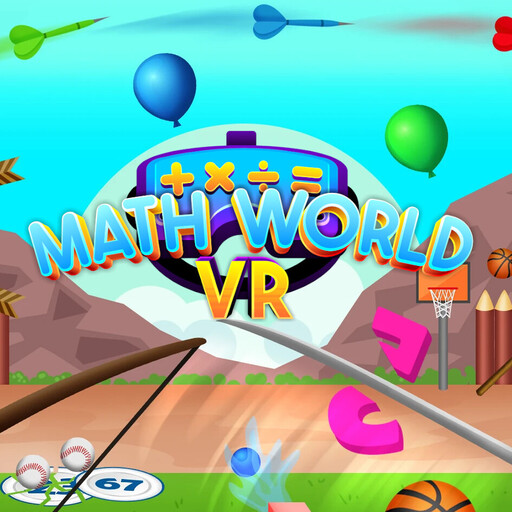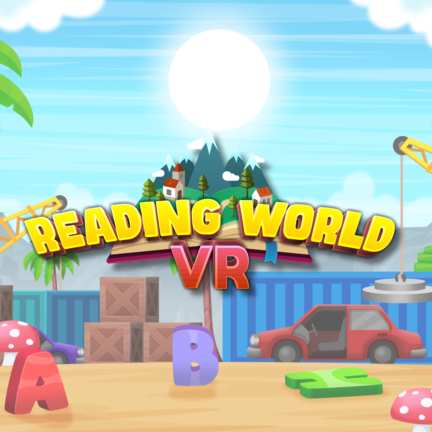In education, educational games have emerged as a powerful tool for skills development. These games, designed with the dual purpose of entertaining and educating, offer a unique approach to learning that can significantly impact a learner’s cognitive, social, and emotional skills. This blog delves into the multifaceted impact of educational games on skills development, highlighting how they transform traditional learning paradigms and foster a rich, engaging, and effective learning environment.
Cognitive Skills Enhancement
Educational games excel in enhancing cognitive skills. They challenge players to think critically, solve problems creatively, and make decisions quickly. These games often present scenarios that require players to apply logic and reasoning, thereby improving their cognitive flexibility and problem-solving skills. For instance, puzzle games that task players with solving complex puzzles under time constraints can enhance spatial reasoning and memory recall. By engaging in these cognitive exercises, learners not only sharpen their minds but also develop a keen sense of awareness and an ability to process information more efficiently.
Boosting Memory and Attention
Memory and attention are foundational cognitive skills critically bolstered by educational games. These games are ingeniously designed to necessitate the recall of patterns, sequences, or essential game elements, thereby indirectly training the brain to retain and recall information more effectively. This enhancement in memory and attention is particularly beneficial in academic settings, where the ability to memorize information and maintain focused attention is invaluable. Furthermore, educational games often demand sustained concentration, aiding in the development of a longer attention span and a heightened ability to focus on tasks. This improved focus and memory recall are not just limited to academic success but are skills that are transferable to various aspects of daily life, enhancing overall productivity and efficiency.
Enhancing Problem-Solving Abilities
The capacity of educational games to enhance problem-solving abilities is unparalleled. These games immerse players in engaging narratives and present them with challenging gameplay scenarios that require the formulation of logical strategies and solutions. This active problem-solving process is not only enjoyable but also instrumental in ensuring that the skills developed are deeply ingrained and readily transferable to real-world situations. Educational games often simulate complex life or academic problems, requiring players to apply critical thinking and adaptability to navigate through challenges successfully.
This immersive approach to learning cultivates a robust problem-solving mindset, encouraging learners to view challenges as opportunities for growth rather than insurmountable obstacles. By fostering an environment where failure is seen as a step towards understanding and mastery, educational games help build resilience and flexibility in thinking. Players learn to approach problems from multiple angles, develop multiple solution strategies, and critically evaluate the outcomes of their decisions. This iterative learning process is crucial in developing a deep understanding of problem-solving principles that can be applied beyond the game, in academic pursuits, and in everyday life challenges.
Cultivating Critical Thinking and Analytical Skills
Educational games play a pivotal role in cultivating critical thinking and analytical skills among learners. These games are designed to challenge players to question, analyze, and synthesize information before making decisions. By engaging with game scenarios that mimic real-life challenges, players learn to evaluate the reliability of information, identify biases, and consider various perspectives before drawing conclusions. This process of critical examination and reflection is at the heart of developing strong analytical skills.
Critical thinking, fostered through educational gaming, encourages learners to not accept information at face value but to delve deeper into the underlying principles and reasons. Games that incorporate puzzles requiring logical deduction or strategy-based scenarios where players must plan and execute actions based on an analysis of the situation, effectively train the brain to process information critically. This skill is invaluable, as it applies to virtually every aspect of life, from navigating social interactions to making informed decisions in personal and professional contexts.
Moreover, educational games that require players to engage in strategic planning and execution also enhance organizational and planning skills. Players learn to set goals, prioritize tasks, and manage resources efficiently to achieve desired outcomes. This aspect of gaming translates into improved time management and organizational skills in real life, preparing learners for success in both academic and professional arenas.

Social Skills Development
Educational games significantly boost social skills development. They often require multiple players to join forces, sparking collaboration, communication, and teamwork. Players learn to work together, sharing a common goal. This teamwork teaches empathy, effective listening, and clear communication. Such skills are crucial, both in school and at work.
Boosting Teamwork and Collaboration
Teamwork thrives in educational gaming. Players must unite their strengths to succeed. They learn to depend on each other, sharing victories and learning from defeats. This unity teaches important life lessons. Players learn about cooperation, leadership, and solving problems together. They see the power of working as a team.
Enhancing Communication Skills
Educational games also sharpen communication skills. In games where teamwork is key, players must talk clearly and listen well. They share plans and support each other. This practice is vital. It prepares players for real-world situations where clear communication matters. Players learn to express their thoughts and understand others better.
Building Empathy and Understanding
Playing educational games with others builds empathy. Players learn to see things from another’s perspective. They understand different viewpoints and feelings. This empathy is important. It helps in resolving conflicts and building stronger relationships. Players learn to respect and appreciate diversity.
Developing Leadership Skills
Educational games often put players in leadership roles. They must guide their team, make decisions, and inspire others. This experience is invaluable. It teaches responsibility, decision-making, and how to motivate people. Players learn what it means to be a good leader. They carry these skills into their daily lives.
Encouraging Healthy Competition
Educational games foster healthy competition. Players strive to do their best while respecting their opponents. This competition teaches sportsmanship. Players learn to win gracefully and lose with dignity. They understand that effort and attitude are as important as the outcome.

Real-World Applications of Skills Developed Through Educational Games
The skills honed through educational games extend far beyond the digital realm, preparing players for a multitude of real-world applications. These competencies, encompassing cognitive, social, and emotional domains, equip individuals with a robust toolkit for navigating the complexities of modern life. Let’s explore how these skills translate into tangible benefits in various aspects of the players’ future.
Enhanced Problem-Solving in Professional Settings
The problem-solving abilities developed in educational games are invaluable in the workplace. Individuals who can approach challenges creatively and strategically are assets to any team. They can analyze situations, identify solutions, and implement them effectively. This capability is crucial for innovation, project management, and overcoming obstacles in fast-paced professional environments.
Improved Team Dynamics and Collaboration
The teamwork and collaboration skills fostered by educational games enhance one’s ability to work well in group settings. In today’s collaborative work culture, the ability to communicate effectively, share responsibilities, and support team members is essential. Individuals who excel in these areas often emerge as natural leaders, capable of driving projects to success and fostering a positive team atmosphere.
Effective Communication Across Platforms
The communication skills sharpened through gaming are critical in a world where digital correspondence dominates personal and professional interactions. Gamers learn to articulate their thoughts clearly and concisely, whether in written or verbal form. This skill is invaluable in crafting compelling presentations, writing professional emails, and engaging in productive discussions.
Adaptability and Flexibility in Changing Environments
Educational games often require players to adapt to new rules, environments, and challenges swiftly. This adaptability is a key skill in the real world, where change is constant. Individuals who can quickly adjust to new circumstances, learn new technologies, and embrace change are more likely to thrive in various careers and personal endeavors.
Emotional Resilience and Stress Management
The emotional skills developed through gaming, such as resilience and stress management, are crucial for personal well-being and professional success. Learning to handle failure, manage frustration, and celebrate successes in games helps individuals develop a healthy approach to challenges and setbacks in life. This emotional intelligence is key to maintaining balance and pursuing goals with persistence and positivity.
Critical Thinking and Analytical Skills in Decision Making
Educational games enhance critical thinking and analytical skills, empowering players to make informed decisions based on evidence and logical reasoning. This ability is invaluable in personal finance management, navigating complex social issues, and making strategic career choices. Individuals who can think critically and analyze information effectively are better equipped to make decisions that align with their goals and values.

The Future of Educational Gaming in Skill Development
The landscape of educational gaming is rapidly evolving, promising an even more integral role in skill development for learners of all ages. As technology advances and our understanding of learning methodologies deepens, the future of educational gaming looks bright, with potential to revolutionize how skills are developed and honed. This section explores the emerging trends and potential advancements that could shape the future role of educational gaming in skill development.
Integration of Cutting-Edge Technologies
The integration of cutting-edge technologies such as virtual reality (VR), augmented reality (AR), and artificial intelligence (AI) into educational games is set to offer unprecedented immersive learning experiences. VR and AR can simulate real-world environments and scenarios, providing a hands-on learning experience that enhances practical skills and understanding. AI, on the other hand, can personalize learning experiences, adapting to the individual’s pace and style of learning, ensuring that each player achieves optimal skill development.
Gamification of Traditional Education
The gamification of traditional education is an emerging trend that is likely to grow. By incorporating game design elements into non-game contexts, educators can make learning more engaging and effective. This approach not only motivates learners but also allows for the development of specific skills through targeted game mechanics. As gamification becomes more prevalent, we can expect a more seamless integration of educational games into mainstream education, blurring the lines between learning and play.
Emphasis on Soft Skills Development
While educational games have traditionally focused on cognitive and academic skills, the future will see a greater emphasis on soft skills development. Skills such as emotional intelligence, adaptability, creativity, and interpersonal communication are increasingly recognized as critical for success in the 21st century. Educational games will likely evolve to address this need, offering scenarios and challenges that foster these essential life skills.
Collaborative and Social Learning Environments
The future of educational gaming may also see a shift towards more collaborative and social learning environments. Multiplayer games that encourage teamwork and communication can mimic real-life social interactions, preparing learners for collaborative work and social engagement in their personal and professional lives. This shift towards social learning not only enhances the development of social skills but also enriches the learning experience, making it more enjoyable and effective.
Conclusion
The impact of educational games on skills development is profound and multifaceted. By engaging learners in an interactive and enjoyable learning process, these games enhance cognitive, social, and emotional skills in ways traditional educational methods may not. They offer a dynamic and immersive learning experience that prepares learners for the complexities of the real world, making them an invaluable tool in modern education. As we continue to explore and understand the potential of educational games, it becomes clear that they are not just a supplementary educational tool but a necessary evolution in our approach to learning and skills development.








